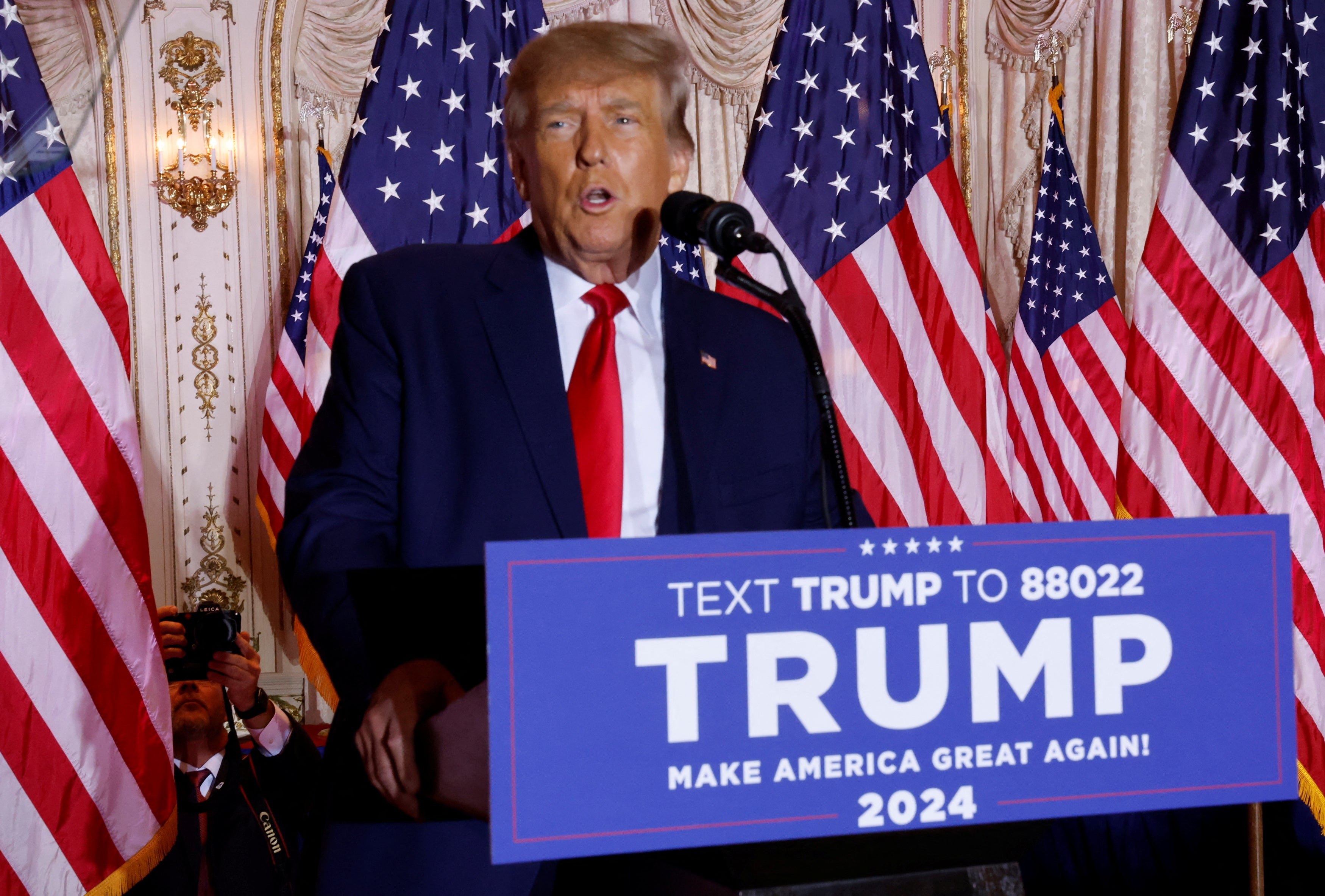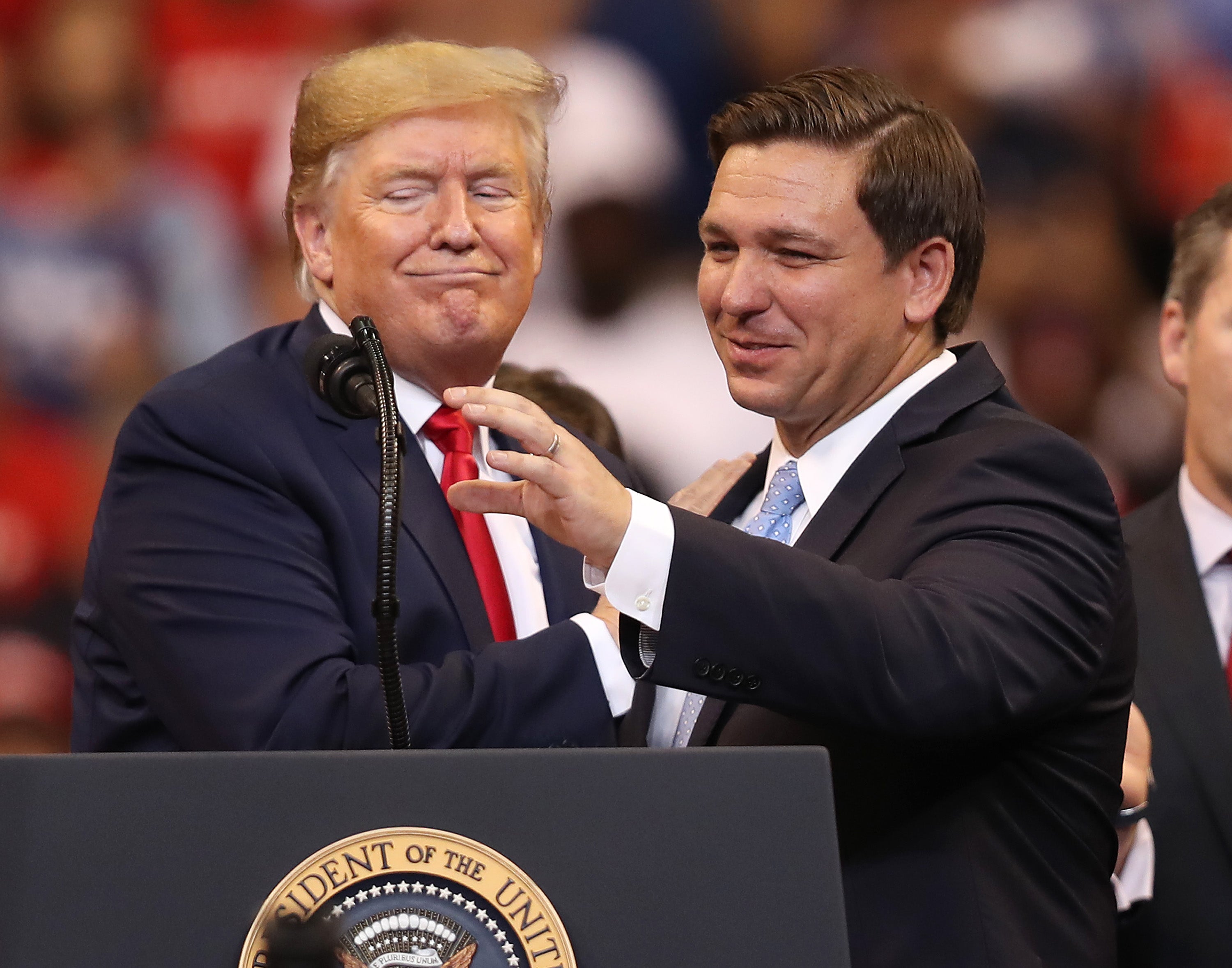
Donald Trump on Tuesday night became the first major candidate to officially declare his candidacy for the presidency in 2024.
In a long and meandering speech, Mr Trump ran through the greatest hits he typically serves up during campaign rallies. “America’s comeback starts right now,” Mr Trump said from Mar-a-Lago, the Palm Beach, Florida mansion that was raided by FBI agents in August.
“In order to make America great and glorious again I am tonight announcing my candidacy for president of the United States,” said Mr Trump.
Here’s what happens next.
Other candidates will likely announce
Mr Trump beat a crowded field of Republican candidates to win the nomination in 2016, and it’s possible that he’ll have to do so again to win his party’s nomination for the third consecutive cycle.
A number of other prominant Republicans have been laying the groundwork for a presidential bid, including, most notably, Governor Ron DeSantis of Florida — the one Republican who has bested Mr Trump in select polls of the still-nascent 2024 race.
Tensions between Mr Trump and Mr DeSantis escalated throughout the fall as Mr DeSantis was campaigning for re-election as governor, with the two men avoiding each other on the campaign trail and Mr Trump disparaging his potential rival as “Ron De-Sanctimonious” in a press release last week.

Like Mr Trump, Mr DeSantis has won national media attention and built a base of followers in the Republican Party by taking hardline stances on a bevy of cultural issues — refusing to comply with Covid public safety safety guidelines during the first year of the pandemic, signing legislation limiting free speech about race, gender, and sexual orientation in schools, and limiting access to gender-affirming healthcare for transgender children.
Mr DeSantis is not the only Republican considering a challenge to Mr Trump. Former Vice President Mike Pence has visited early primary states like Iowa and New Hampshire in advance of a potential White House bid, while Sens Ted Cruz and Tim Scott reportedly harbour White House ambitions.
Other, more moderate Republicans like former Gov Larry Hogan of Maryland or Rep Liz Cheney of Wyoming might also run in the hopes that their party turns away from far-right candidates and positions that appear to have cost Republicans winnable midterm races last week.

Then there’s the Democrats: President Joe Biden has indicated that he will seek re-election, which, given historical trends, would make him the favourite to win the 2024 race.
The primaries
The presidential campaign will begin in earnest next year when the field takes shape and debates begin. Then, in early 2024, Republicans will begin holding their primary nominating contests.
Each state will award a number of presidential nominating delegates proportional to its size, with candidates needing to secure a majority of all delegates to clinch the party’s nomination. Mr Trump effectively wrapped up the Republican nomination in 2016 in May following a commanding win in that year’s Indiana primary when Mr Pence, then serving as Indiana governor, voted for Mr Cruz.
The convention
The presidential picks are offically nominated at the party conventions, typically held in July or August. If Mr Trump wins the Republican primary, this is where he will presumably accept the party’s nomination.
The general election
The next general election will be held on Tuesday,5 November 2024. Whichever candidate recieves a majority of 270 Electoral College votes will be elected president, barring any anti-democratic manuevering akin to what Mr Trump and allies are accused of attempting in the aftermath of the last presidential election.
If Mr Trump is to win back the White House, the journey to get him there will take more than two full years from the date of his declaration of his candidacy to the next presidential inaguration set for January of 2025 in Washington.
Of course, there are a number of unusual wild cards associated with Mr Trump’s bid. One of those wild cards is his legal troubles stemming from his attempts to overturn the results of the 2020 election that he still falsely maintains was rigged against him.
Mr Trump is attempting to become just the second ever person to win two non-consecutive terms following Grover Cleveland in the late 1800s. It is uncommon, furthermore, for a leader who unsuccessfully attempts to remain in office by undemocratic means to return to that office via a democratic election.







